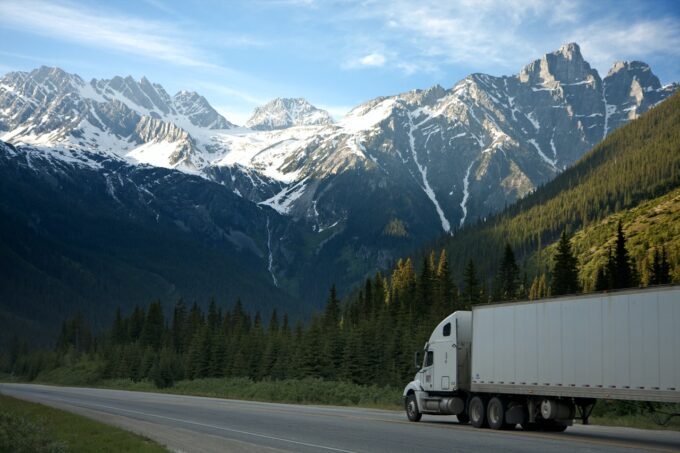If you run a truck company, it’s essential to cover the legalities and get proper insurance coverage to protect your drivers, vehicles, and the goods you transport. The premiums may be higher than for an average car, but the risks associated with operating a truck without one are significantly larger. In this article, you find information to help you identify the ideal bobtail truck insurance for you.
Truck insurance explained

Source: merchantmaverick.com
You can choose from multiple types of insurance coverage for your trucks.
– Primary liability insurance that covers for the damages your drivers may cause when driving the trucks
– Physical damage insurance covers the damage your trucks experience as a result of extreme weather, theft, vandalism, or collision.
– Occupational accident coverage that provides compensation related to work injuries and income replacement.
– Bobtail truck coverage covers the instances when your workers drive commercial trucks without a load or trailer for commercial or personal purposes. Insuranks, a platform specialised in providing information about coverage state that bobtail truck insurance also offers coverage for the financial loss you experience when a driver causes an accident with a truck that lacks a load or trailer.
– General liability insurance covers anything the other types of coverage don’t. It can pay for property damage or additional injuries resulting from an accident. This kind of coverage applies to your business, not trucks.
– Umbrella policy offers general liability, auto liability, and workers’ compensation.
How does the insurance provider calculate the cost of your truck insurance policy?
Multiple factors can influence the cost of insurance coverage. Most providers check your business activities and risks associated with your industry to determine how much you must pay. Here are the most common factors an insurance provider goes through to calculate a truck insurance coverage price.
– Your business location. Each state has a unique pricing method to calculate truck insurance prices.
– Cargo. The goods you carry in your trucks can influence the risk level of the insurance and, therefore, its price. The more dangerous or heavier the cargo is, the more damage it can cause in an accident.
– The type of vehicles you use. The more powerful and heavier the trucks are, the more the coverage company will charge. Lighter vehicles are easier to maneuver and less likely to cause extensive damage. The insurer will also check how expensive the truck is because repairs cost more for a pricey vehicle.
– Operating radius. The longer the distance your drivers cover, the higher is the price for the truck insurance. Long-haul trucking means that the workers are behind the wheel for a long time and more likely to get tired. The more they drive, the more likely they are to cause an accident.
– Drivers’ history. Expect the truck insurance provider to verify your truckers’ driving history. Hire only individuals with a clean driving record to prevent getting expensive policies. Even a speeding ticket can add hundreds of dollars to the coverage price.
Do you need truck insurance?

Source: unsplash.com
According to federal laws, you need to have adequate insurance to drive on public roads. Therefore, you should obtain one from a reliable provider specializing in developing policies for trucking businesses.
When you hire multiple individuals to drive your vehicles, it’s wise to have spot checks, monitor, and upgrade their aptitudes to ensure that their behavior behind the wheel is proper and doesn’t pose risks to other road participants. Having drivers with a clean record is essential because it allows you to save money on insurance and protect your business reputation.
How can you reduce your commercial trucking insurance?
Truck coverage can be a hard-hitting expense for a trucking company, considering that the rates increased over the last few years. And unfortunately, as you’ve already found out, you cannot cut out the insurance policy as the federal regulations require it for your business to operate. As shown above, coverage providers consider multiple factors to determine your truck premiums. Knowing what they’re looking for can help you reduce the costs.
Hire experienced drivers

Source: pexels.com
Insurance companies are keen on your employees’ years of driving experience when they establish your policy cost. Experienced truck drivers deal better with challenging road conditions and adverse weather. Your insurer will perceive your company as less-risky if you employ experienced drivers. Therefore, they will be willing to lower the coverage premium and offer a better price. Ideally, all your drivers should have at least two years of experience in the same domain.
Employ drivers with clean driving records
Besides their experience, their driving history is also important because it predicts the future. Drivers with a rich history of violations and accidents have a higher risk of doing it again, and therefore they represent a higher risk than their counterparts. The reverse is true, and insurers offer more affordable insurance premiums to truck businesses with few or no traffic violations. It’s best to hire drivers who have had less than two minor violations over the last three years.
Verify driver employment history

Source: pexels.com
An employee who is constantly changing employers doesn’t inspire confidence with insurance companies. On the other hand, an employee who has served an extended period with a few employers is considered more stable. Hire drivers who don’t have gaps in their employment history because it shows your insurer that they are experienced and have trustworthy behavior.
Map out the routes
The routes on which your drivers operate have a significant influence on the price of the coverage premium. Factors like the population density, frequency of inclement weather, and other similar ones can impact the risk level of a route and therefore influence the insurance cost. You should try to pick routes that have a low population and are less prone to bad weather.
Before you pick an insurance coverage for your trucks, compare the prices different providers offer to ensure that you get the best price for their benefits. The tips listed above should help you get the best deal on your coverage premium.







